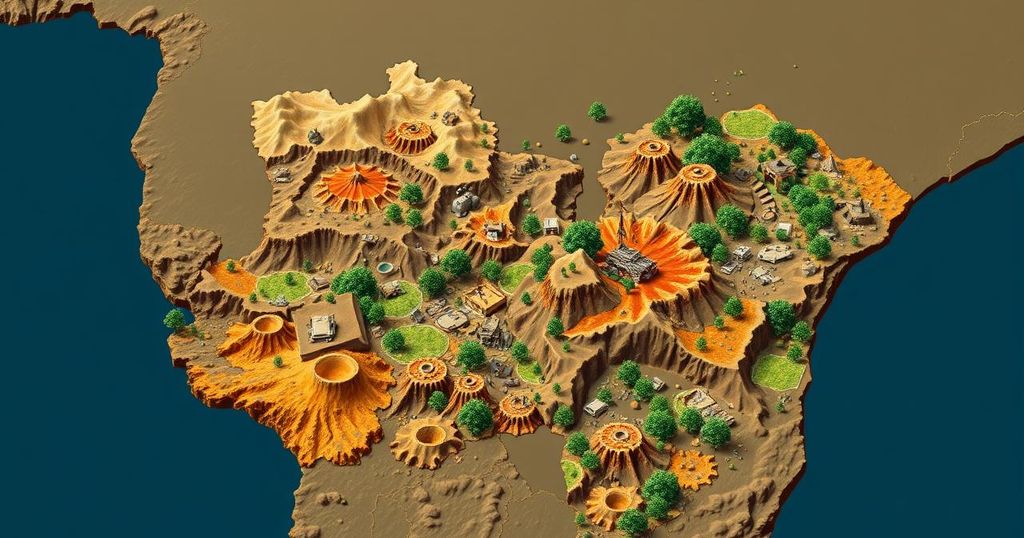Economic Overview of the Democratic Republic of the Congo: Historical Challenges and Recent Developments
The Democratic Republic of the Congo’s economy has long been dominated by mineral extraction but has faced severe challenges due to mismanagement and corruption, particularly during Mobutu’s rule. Nationalization efforts led to a widespread economic crisis in the 1990s, with subsequent reforms in the 21st century showing signs of growth, yet significant issues remain in agriculture and overall economic stability.
The Democratic Republic of the Congo (DRC) has a complex and turbulent economic landscape, rooted primarily in mineral extraction, particularly copper and diamonds, since its independence in 1960. Initially, the economy was predominantly managed by foreign entities, such as the Belgian Union Minière du Haut-Katanga (UMHK), which controlled significant revenue streams and foreign exchange. However, political shifts, notably the 1965 coup by Mobutu Sese Seko, led to nationalization efforts that culminated in the establishment of the state-owned enterprise Générale des Carrières et des Mines (Gécamines). Over time, Mobutu’s regime shifted focus towards a system of “Zairianization,” where state enterprises were systematically appropriated, creating a culture of embezzlement and corruption, exacerbated by spiraling economic mismanagement. By the 1990s, a combination of declining productivity, rampant inflation, and civil unrest led to an economic collapse, with per capita income plummeting to some of the lowest levels globally. Despite this, international bodies initially supported Mobutu, resulting in continued financial aid, even as the nation’s governance deteriorated. After years of decline, the DRC began to liberalize its economy in the early 2000s, implementing reforms in collaboration with the International Monetary Fund (IMF) and the World Bank, leading to modest growth and a move away from hyperinflation. Agriculture remains a critical sector, providing employment for the majority of the populace, although the country faces challenges such as transport deficiencies and reliance on subsistence farming. Foods like cassava and robusta coffee are dominant, but past agricultural exports have dwindled due to various economic factors. Overall, while progress has been made, the DRC continues to navigate an intricate set of economic challenges.
The Democratic Republic of the Congo has a rich natural resource base, primarily centered around mineral wealth, such as copper and diamonds. However, the management of these resources has been plagued by political interference and a legacy of foreign control which began at independence in 1960. The nationalization efforts spearheaded by Mobutu Sese Seko shifted control away from foreign companies toward state-owned enterprises, yet these efforts often led to increased corruption and economic instability. Over the decades, ongoing political turmoil and mismanagement resulted in significant declines in productivity and living standards, culminating in a major economic crisis in the 1990s. Recent reforms aimed at economic stabilization and liberalization have shown positive signs, albeit the underlying challenges of poverty and agricultural dependency persist.
In summary, the economy of the Democratic Republic of the Congo has undergone significant upheaval since its independence, transitioning from foreign-controlled mineral extraction to state-owned enterprises under Mobutu’s regime. Despite international support, economic mismanagement led to a severe crisis by the 1990s. Recent attempts to reform and stabilize the economy signify potential for recovery; however, the nation continues to face daunting challenges related to agriculture and governance that hinder effective progress toward a sustainable economic future.
Original Source: www.britannica.com




Post Comment